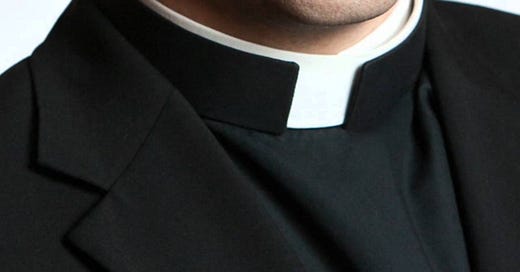Is the Unitarian Universalist ministry an outmoded concept?
UU is not supposed to be like other churches
“Clergy have no innate authority. Holding a church leadership position or having a theological degree does not imbue a person with special divine authority or superiority. The terms ‘anointed’, 'called’, or ‘chosen’ or titles such as ‘pastor’, 'priest', ‘bishop’, ‘elder’, ‘evangelist’ or ‘apostle’ do not confer any innate authority on an individual or group.” — Jim Palmer, former evangelical pastor
As I wrote about in a previous post, The Unitarian Universalist church's broken ministry system, the UU church is facing a ministry crisis. Seminaries and the ministry fellowship processes are turning out many narrow-minded, doctrinaire ministers who reject traditional UU principles of freedom of belief and expression. These ministers have been trained to see their role as reforming “wrong thinking” congregants rather than serving them, bringing strife and membership loss to congregations. There is also a severe minister shortage, with many congregations unable to find ministers and having to look beyond both the UUA and UU to try to find one.
In an online UU forum discussing the formation of the new North American Unitarian Association, a breakaway group from the UUA, Burton Brunson’s below post prompted reflection:
“Now might be a good time to rethink some fundamentals. Are we maintaining some negative aspects of old religions simply out of habit? Specific example: Do we really need a ‘minister’? Is a minister not merely an updated priest—an unnecessary relic of superstition? Consider the title ‘Reverend’. It means ‘revered’. It’s okay for me to refer to the Reverend Jones, if Jones is someone I respect. But when he refers to himself by that title, it’s either unthinking ritual or absurd, pretentious arrogance. In the real world, it’s unthinking habit. But is it necessary? He could be called Manager. Or, President. Or simply Leader.
Our ministers function to inform, counsel, and to an extent, lead. This may not seem like a big issue, but it illustrates how the ritual observance of outdated religious practices can alienate younger generations who already find church functions unattractive.”
UU has always been a non-creedal, pluralistic church that includes members of diverse religious and philosophical beliefs, including atheism and agnosticism. This alone says that congregations don’t need traditional religious ministers.
In an increasingly secular world, where many young people have rejected organized religion altogether, a truly open-minded and liberal church like UU could be a haven. Instead, the current UUA and its seminaries are moving towards trying to transform UU into just another church, including incorporating Christian language like “worship” and “Our UU Faith.”
The quality of today’s UU ministers varies greatly—some are excellent, while others are not. After encountering numerous problematic UU ministers, some of who reject religious liberalism, I know that a title does not guarantee good leadership or education. Many UU congregations have recently learned the hard way that it is better to have no minister than a bad one.
UU congregations don’t need ministers to promote liberalism or run their communities. Some congregations may choose to have a well-vetted UU minister, while others might decide to operate without one or hire someone completely outside UU. With the minister shortage, this is not merely an abstract topic.
.





Very interesting and thought provoking David. Many cultures seems to have religious and/or spiritual leaders, yet that doesn't mean UU should continue that model. We live in a hierarchical world and it challenging to propose some other approach.makes me also think of the role of priesthood, to pass down the "truth". Hmmmn.
David, just as I got a ping notifying me of this latest post from you, a UUA newsletter arrived in my inbox announcing the 2024-25 Common Read—
“Authentic Selves: Celebrating the Lives of Transgender and Nonbinary People and Their Families.”
A question very much on my mind these days is: How long before the UU denomination makes a course-correction away from the extremes of gender dogma? And I ask this as one who used to accept much of the gender identity activists’ narrative as true! Like so many gender-dogma heretics, I’m coming from a place of love and caring, as well as a desire to understand. And as I learned more, my former beliefs started to unravel.
At present, the answer seems to be: Not yet. Those at the helm are doubling down.